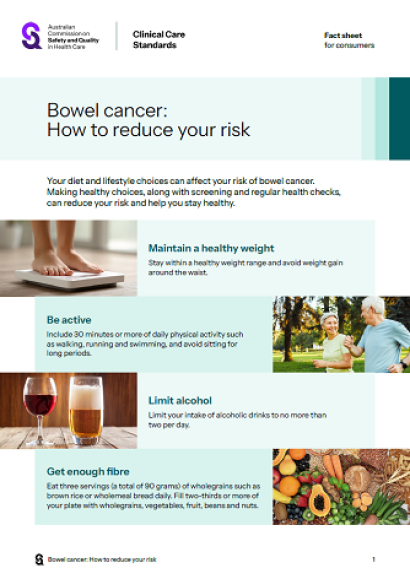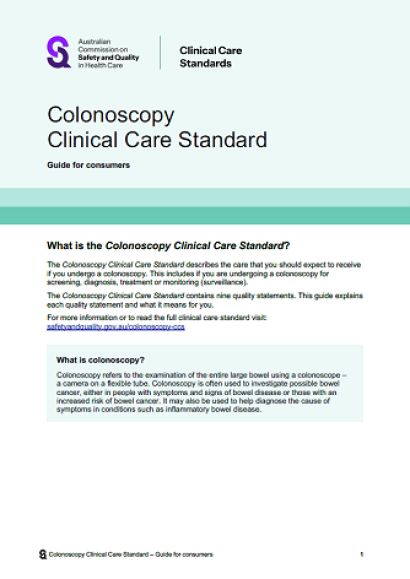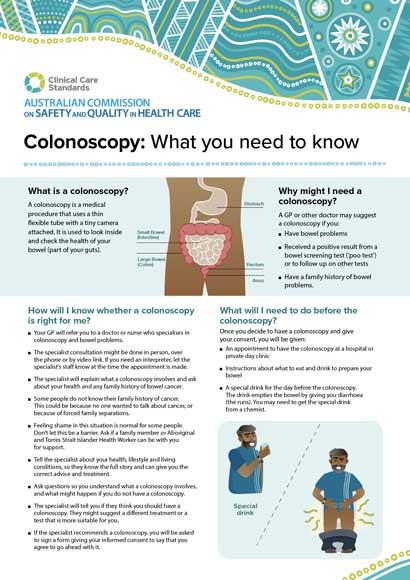Information for consumers - Colonoscopy Clinical Care Standard
The Colonoscopy Clinical Care Standard describes the care that you can expect if you are having a colonoscopy. Find out more about the nine quality statements from the standard, as well as helpful resources.
What is a colonoscopy?
A colonoscopy is a procedure that uses a thin flexible tube with a tiny camera attached. It is used to look inside your bowel. A colonoscopy might be recommended:
- if you have bowel problems or symptoms
- when you have had a positive result on a bowel cancer screening test ('poo test')
- because of your previous colonoscopy results or family history.
Information about colonoscopy and what you need to know
Find out more about colonoscopy and the standard below.
What you need to know before you have a colonoscopy
This video explains more about your rights, choices and what you need to do if you are having a colonoscopy and why preparing your bowel is so important.
Bowel cancer: How to reduce your risk
You can also learn how to reduce your bowel cancer risk in our fact sheet.
Consumer guide
More information about the Standard is available in our consumer guide.
What you need to know before you have a colonoscopy
This video explains more about your rights, choices and what you need to do if you are having a colonoscopy and why preparing your bowel is so important.
Bowel cancer: How to reduce your risk
You can also learn how to reduce your bowel cancer risk in our fact sheet.
Consumer guide
More information about the Standard is available in our consumer guide.
Colonoscopy for Aboriginal and Torres Strait Islander people
Fact sheet
Consumer video
This video explains an Aboriginal and Torres Strait Islander person's rights, choices and what they need to do if they are referred for a colonoscopy. It outlines why emptying the bowel properly before a colonoscopy is so important.
Fact sheet
Consumer video
This video explains an Aboriginal and Torres Strait Islander person's rights, choices and what they need to do if they are referred for a colonoscopy. It outlines why emptying the bowel properly before a colonoscopy is so important.
What the standard means for you
The standard contains nine quality statements describing the care that you should be offered if you are undergoing a colonoscopy. Find out what the standard says and what it means for you in the statements below. You can use this information to inform discussions with your healthcare provider, and help you make informed decisions about your care.



